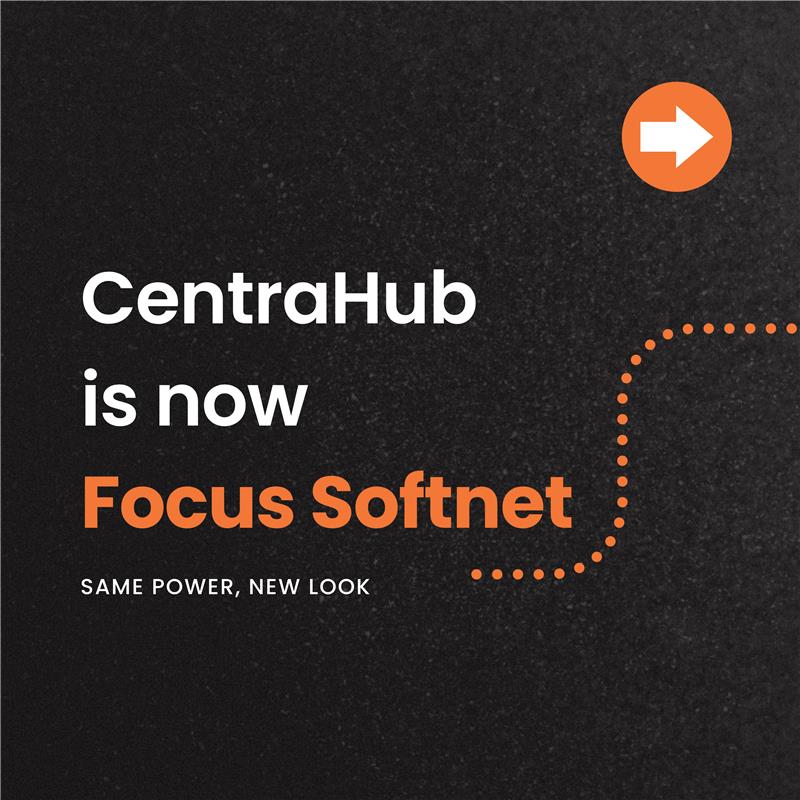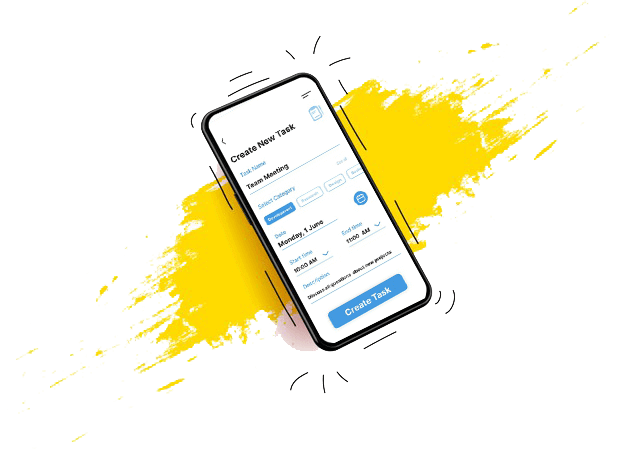
Customer relationship management software, in the beginning, was not a robust system that we see today. It has evolved over the decades to become the most prominent customer management solution that many businesses rely on.
The 1980s marks the beginning of CRM software. Back then, it was essentially a contact management system that allowed extensive storage and efficient organizing of customer contact information.
However, near the close of the decade, numerous technological and architectural advancements in software systems paved the way for explosive growth in CRM. The system eventually emerged as an all-inclusive application consisting of necessary tools to channel customer information for shielding, fostering, and enhancing business development.
Fast-forwarding through the various forms of development, automation was introduced, bringing a massive change in database management. The new capability helped in shaping the modern CRM software that we now know.
As time passed, smart features like storing data in the cloud, being mobile-friendly, scalable storage capacities, chatbots integration, and AI are added to the CRM system. All these fueled the rapid adoption of the new technology enables solution.
Companies deploying CRM software are able to achieve information uniformity across their organization, improve communication among various departments, get rid of manual entry errors, and instill operational accuracy. Further, its advanced functionality also allows to access business data at any time and makes monitoring of marketing strategy, manage customer, and sales team easy through a real-time dashboard.
Customer relationship management software works on three major principles - shielding the existing clients, fostering new customers, and enhancing the asset value of your business. CRM software includes a set of tools that ensure all company information is rightfully recorded so that interaction with consumers goes smoothly and without any hassle. This increases the overall process efficiency and business profit, meliorates customer satisfaction and loyalty, and reduces costs and investment.
CRM software enables you to have the essential business information at your fingertips to use as you need it, introduce effective communication with your prospective customers, and establish long-term relationships with your clients. The absence of it often increases the risk of missing valuable opportunities.
There are three main types of CRM software. We have classified them based on what each one offers.
Operational CRM is designed to simplify and streamline sales, marketing, and service through automation. It makes life easier for your sales, marketing, and service teams as automation relieves them from performing repetitive tasks that otherwise would have taken up a sizeable chunk of their busy day. This CRM incorporates various modules that provide the necessary infrastructure to delight customers and solve business-customer relationship problems.
In sales, the CRM system ensures information is organized to deal with existing clients and newly acquired customers efficiently. For marketing, it guarantees that product offerings are well-propagated through campaigns and leads generated are tracked and organized. Finally, service automation enables reaching out to contacts at scale through effective monitoring and dealing with their issues and queries.
Data management and analysis is the fundamental aim of this CRM software. So, analytical CRM deals with collecting sales, marketing, service, and customer data to provide better insight with regard to your current business status. The detailed reports help you to make various strategic decisions more efficiently and correctly while keeping track of the campaign outcomes.
The analytical customer relationship management application is ideal for companies that deal with a large amount of data. The system includes advanced tools that would allow you to extract meaningful information from different channels and analyze them in a structured way. You can utilize the collected data for better sales efforts, refine targeted marketing campaigns, and build stronger customer networks with higher-quality support.
The primary function of collaborative CRM is to streamline workflows and share information across the organizational structure and hierarchy. This inter-departmental information can be used proactively by the sales, marketing, and service teams to enhance your marketing outcome, increase sales, and improve customer services across all the channels.
The major goal of the collaborative CRM application is to improve the synchronicity within the business and offer all the departments a better understanding of the customer needs and interests. The system can be put to best use when you deal with multiple businesses and need to conduct, marketing promotions, lead generation activities, and customer services jointly. The system aligns resources and strategies to identify, acquire, develop, retain, and maintain valuable customers.
Every business that deals with sales, marketing, and services can benefit from customer relationship management software. The system helps you work faster and better in less time and effort. A thoughtful CRM solution can neatly place all your work processes in one place and automate them to give your organization an edge.
B2B CRM software is meant to help you deal with your corporate customers and clients. The system allows your employees to work more productively and make clear decisions at every stage, based on real-time information. This ultimately leads to build better relationships, gain their trust, and bring sales success.
B2C CRM software is designed to scale your business profit. Customers interact with your company using multiple channels and devices throughout the buying journey. The CRM platform unifies and analyzes these interactions to help you better understand your customer profile and plan strategies to increase sales.
Fulfilling customer expectation is core to business success for SMBs. The CRM system not just make it easy to manage your growing database and stay connected with the contacts, it actually helps you to address customer issues faster, prepare and execute effective marketing campaigns, and drive sales processes better.
Enterprise CRM software is capable of tracking and managing your sales reps’ interactions with your prospects and customers. It includes all necessary modules required in nurturing effective communication across teams, drill deep data insights, work with efficiency, retain more customers, and bolster revenue.
Customer relationship management is practicing strategies for improving your business relationship with customers and driving sales growth. There are eight building blocks to adopting CRM software for guaranteed business results.
Refers to your company’s vision, mission, and goals in planning your sales, marketing, and service strategies.
Refers to your tactics for reaching your prospects and managing your relationship with your customers before and after the sales.
Refers to managing your contacts, remembering their needs, and creating a truly valuable experience for them.
Refers to sharing data across all departments to ensure organization-wide propagation of a single source of truth.
Refers to streamlining of businesses processes using the CRM software to manage and utilize data for developing prospects.
Refers to storing all customer information digitally, on a centralized platform that would be otherwise misplaced from paper files.
Refers to you adopting the right technology essential for bringing your overall sales, marketing, and service success.
Refers to information and insight that you can rely upon to measure effectiveness, drive process change, and refine the experience.
Customer relationship management is a powerful tool with endless capabilities for upgrading your sales, marketing, and service operations. The system is embedded with tools to help you reach new customers, win business, keep clients happy, build stronger relationships, and grow your business faster.
The CRM system starts by collecting your customer data from the website, email, social media, and other sources. It then organizes it on a centralized database to give you a complete view of recorded information about the individuals and companies to help you better understand and strengthen your relationship with them over time. It thereby aids you in accelerating your business' growth.
CRM software is an immensely useful tool when it is properly deployed. The system keeps track of all interactions and manages communications with prospects and customers to enable you to encash every opportunity for revenue generation. Here are the benefits:
Enhance customer satisfaction through a better understanding of your contacts and what they want
Increase team efficiency through effective information sharing and automation of repetitive day-to-day work
Boost sales by retaining existing clients and planning the right strategies to attract and gain new customers
Imply information-driven decisions gained through real-time business insights and advanced reporting
Impose better control on operations through advanced tracking and managing of processes from a single platform
Maximize profitability by effectively using customer information to increase up-selling and cross-selling
Work from anywhere using the cloud platform to check and update information instantly at any time
Keep implementation costs low with quick and easy cloud-based software deployment and maintenance
CRM software contains every bit of detail of all prospects; hence it helps you gain the analytical view of the acquired or to be acquired customers to rule out improper targeting and plan better marketing campaigns.
CRM software handles A to Z sales process, from lead generation to conversion. The system simplifies the workflows and allows you to build effective sales pipelines, track leads, and improve visibility on sales opportunities.
CRM software offers you immediate access to customer information across multiple channels. It captures customer interactions to enable your service and support staff to deliver faster resolutions to customer grievances.
Both on-premise and cloud CRM software have their own benefits. So, it is important to carefully consider their impact on your business objectives while deploying the system. Here are the key differences:
High capital cost required for purchasing hardware, software, license, etc., during deployment
Subscription-based, pay as per the usage
Maintenance is in-house IT staffs’ responsibility
Maintenance is vendor’s responsibility
Depends on the vendor and takes more time
Easier and faster
Accessible only from systems within the office premise
Accessible from anywhere and on any device
Data security maintained by in-house IT staff
Vendors follow high-standard database security protocol
System upgrade is users’ responsibility
Software upgradation is done by the service provider
Requires new software implementation to accommodate change
Flexible to accommodate increase or reduction in data or users
CRM software is designed to quantify the revenue generation opportunities for your business. The system makes the life of your sales, marketing, and service teams easier with the help of its new-age features, including:
Workflow automation
Customization
Third-party integration
Customer service tracking
Insightful reporting and analytics
Social media monitoring
Lead management
Contact management
Implementing CRM software can benefit your businesses. However, the tricking part here is choosing the right system that would bring the highest advantages to your sales, marketing, and service efforts.
Solves your business problem
Includes all necessary features
Can be customized as per your need
Saves your deployment time and cost
Offers easy navigation
Allows department-wide collaboration and data sharing
Supports automation of day-to-day tasks
Is integration-friendly
The majority of the CRM software includes all sets of tools that would allow your organization to handle multiple operations effortlessly. But if you want to get the most of your CRM solution, you need to focus on best practices. Here is the outline of what all you need to consider.
Prepare a plan in advance
Choose a CRM that fits your needs
Train your workforce well before planning deployment
Lay down some rules to use the CRM
Rely on a simple and easy-to-use system
There is no perfect time for implementing CRM software and you can reap benefits from the moment it is deployed. But certain factors would prompt you to consider a CRM to save your company from recurring losses. Get a customer relationship management system when:
You are not able to fully leverage customer data
You do not have enough insights into your teams’ performance
Your employees are stuck with manual data-entry tasks
You have a reactive customer service
You are targeting different demographics
You need a longer time to create and analyze your campaigns
Now that you know if you need CRM software, let’s help you in developing a successful deployment strategy. The following are the best practices, pursue them for CRM implementation success.
Select an in-house CRM implementation team
Design a change management plan
Forecast an implementation budget
Begin rolling out your CRM software
Test and initiate your CRM go-live
CRM integration is the process of establishing seamless connectivity between the system and other third-party applications. You can use these bespoke apps to expand the functionality of your CRM software and relieve your staff from toggling back and forth between multiple systems. This improves the flexibility of your workforce in performing various tasks and saves time that can be utilized more productively.
In recent times, when mobile usage has overtaken desktops, your CRM software needs to allow data access to your workforce on mobile. This would enable your team to enter and update records on the go. Being freed from the constraint of working on desktops, improves your teams’ productivity while offering them the liberty to work at their convenience.
Whether you have a startup, a small business or an enterprise, finding new customers and retaining the existing clients can be challenging without apt CRM software. Here are the business issues that CRM solves:
CRM software is built to help you manage relationships and interactions with your clients and customers. The data stored in the system offers you insights into their interests, purchase history, preferences, and more, enabling you to forecast and tailor service strategies to immediately address your customers' needs for a superior customer experience.














